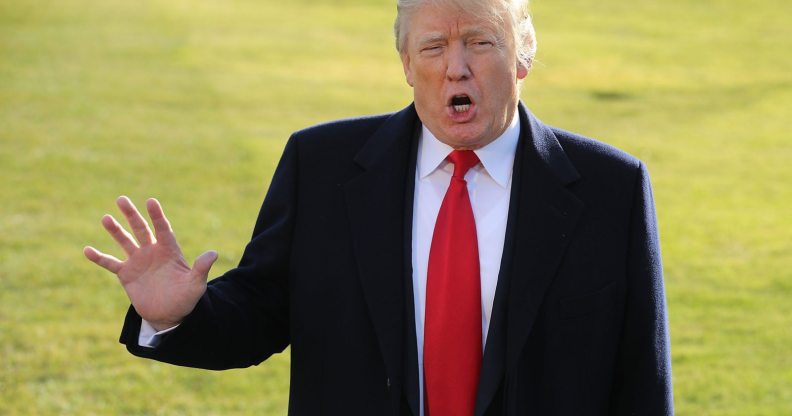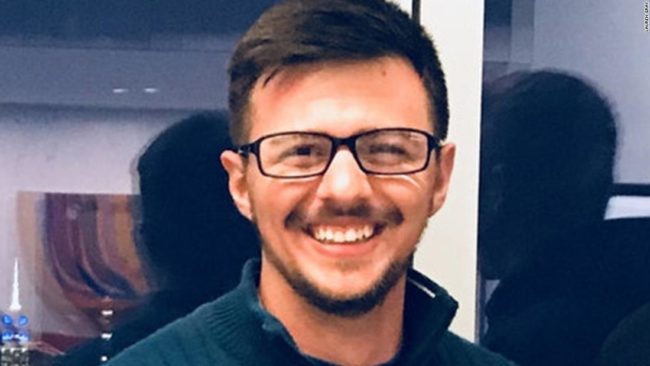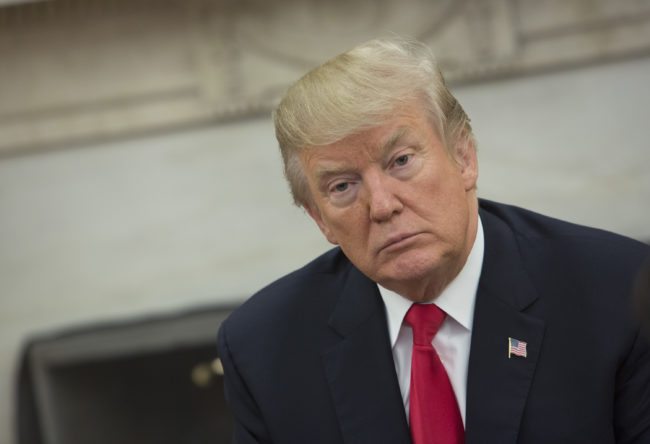Trump stops fighting to block transgender military enlistment for now

(Getty)
Transgender people will from 1 January be able to sign up for the US military as the Trump administration has announced it will stop trying to enforce a ban.
After two federal appeals courts, last week rejected the Trump Administration’s ongoing requests to enforce the ban, on Friday the Administration said it would stop trying to enforce it for now.
The Administration said it would wait for an independent study on trans people in the military which is expected out soon.
“This is a major victory in the litigation and great news for transgender troops, transgender military academy and ROTC students, and transgender people who have been waiting to enlist,” Shannon Minter, legal director at the National Center for Lesbian Rights said.
“There is no reason to exclude transgender people from military service, especially when they have already proved their ability to serve.”
Donald Trump announced on Twitter earlier this year that all transgender servicepeople would be purged from the US armed forces, claiming they were a burden on the military.
The policy led to a spate of legal action – and may be derailed entirely after court rulings against Trump.
Four different courts have issued rulings blocking the Trump administration from stalling the implementation of Obama-era guidelines on transgender troops – which means the pre-existing policy, allowing transgender people to join the military, will come into force from January 1.
And at least one transgender person will be there to challenge the ban on day one.
Nicolas Talbott, a transgender man who has long dreamed of joining the military, says he will begin his application to join the military next Tuesday.

Mr Talbott, who has already been in touch with a military recruiter, will schedule an appointment with the Military Entrance Processing Station, and has been preparing to undergo the required tests and physical evaluations.
But he is hoping that, if the Trump administration is not successful in its attempts to block him, he will become the first person to flout the ‘ban’.
He told CNN: “This whole process with the courts has been a roller coaster.
“We are doing well, but we are not out of the woods yet. I’m trying to stay wary, and I’m definitely nervous that we might hit another setback.”
The 24-year-old Ohio man hopes to join the Air Force National Guard, and has spent a year preparing for the entrance exam.

(Getty)
The administration claimed that 20,367 recruiters and 2,785 employees would need training to “have a working knowledge or in-depth medical understanding of the standards and identity validation requirements associated with processing an applicant under new requirements”.
However, the claim has been rubbished in a document published by three former military chiefs.
The three former surgeons general, Vice Admiral Donald C. Arthur, Major General Gale Pollock, and Rear Admiral Alan M. Steinman, found that contrary to the claims, the training process “is not complicated or time-consuming”.
They wrote: “Trump administration officials have claimed that in order to begin processing transgender applicants for military service
“According to the administration, training will be difficult and complex, because “no other accession standard has been implemented that presents such a multifaceted review of an applicant’s medical history” and because the military will have to “ensure that the ‘tens of thousands’ of service members ‘dispersed across the United States’ responsible for implementing accession policies ‘have a working knowledge or in-depth medical understanding of the standards.’
“[But] of the 23,000 personnel who DOD claims must be trained to process transgender applicants, 20,367 (89 percent) are recruiters.
“Recruiters do not need additional training to process applications from transgender candidates. All service members who
are now recruiters have received training along with the rest of the force in inclusive retention policy for transgender personnel, so they understand the basic outlines of policy and the basic facts of gender identity.”
They added: “Recruiters do not need to understand transgender medicine or transgender accession standards any more than they need to understand cardiology or cardiology accession standards.
“Recruiters help candidates fill out medical disclosure forms and determine whether medical records are needed and what documentation may be necessary. But they do not diagnose gender dysphoria.”
Recruiters’ only relevant responsibility is to help applicants prepare a required package of medical information, a simple and straightforward task.
“According to one of the nation’s top experts in accession policies and practices, sending a one-page instruction to all recruiting stations would suffice if it has not already been done.”

